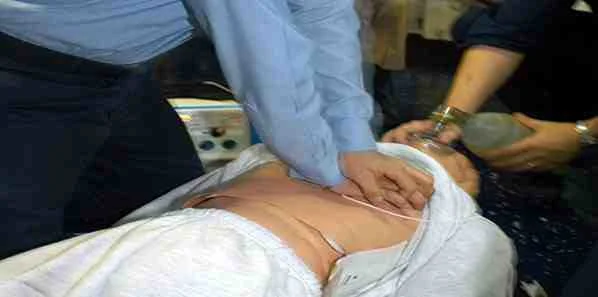A new emergency medicine system that sent patients to designated cardiac reviving centres increased the survival rate of victims of sudden cardiac arrests dramatically. The study was conducted with patients in Arizona and has been published in Annals of Emergency Medicine.
The study was conducted through the Save Hearts Arizona Registry and Education-SHARE Program, a partnership involving the Arizona Department of Health Services and the University of Arizona. It included 31 hospitals, 55 EMS agencies and several fire departments. The study was led by Daniel Spaite, MD, Director of EMS Research at the University of Arizona Emergency Medicine Research Centre in Phoenix and Tucson and a professor and distinguished chair of emergency medicine at the University Of Arizona College Of Medicine.
In order to better evaluate patients, hospitals were designated as cardiac receiving centres (CRCs). Protocols were developed for EMS agencies to transport post-cardiac arrest patients to the CRCS. The primary objective was to ensure that cardiac arrest victims leave the hospital in good shape and are able to return to their families and careers in good health. Through this regionalisation approach, it was observed that the likelihood of survival and the neurological outcome of these patients markedly increased.
The findings of the study showed that the survival rate for cardiac arrest patients increased by more than 60% during the period of this study. The likelihood of survival more than doubled in cases where the EMS system got to the patients quickly after their arrest. The likelihood of surviving with good neurological status more than doubled.
The study also revealed that transporting cardiac arrest victims to the nearest emergency department does not necessarily maximise the likelihood of a positive outcome. The data from this study indicates that a regionalised system of emergency care delivery was more effective in improving the survival rate for cardiac arrest patients.
CRCs are an effective alternative to emergency departments in hospitals as long as EMS agencies are able to transport patients to those centres in less than 15 minutes.
According to Dr. Spaite, regionalised post-cardiac arrest systems of care around the country "could potentially save thousands of lives each year from one of the leading causes of death."
Dr. Babrow, MD, Medical Director of the Bureau of Emergency Medicine Services and Trauma System for the Arizona Department of Health Services concludes that the implementation of this effort in Arizona indicates the potential of specialised regionalisation and is something that has not been previously reported anywhere else in the world. The results are encouraging and exciting and its widespread implementation could benefit more patients and could result in a dramatic increase in the survival rate of patients of sudden cardiac arrest.
Source: ScienceDaily
Image Credit: Wikimedia Commons
Latest Articles
Hospitals, cardiac arrest
A new emergency medicine system that sent patients to designated cardiac reviving centres increased the survival rate of victims of sudden cardiac arrests...










